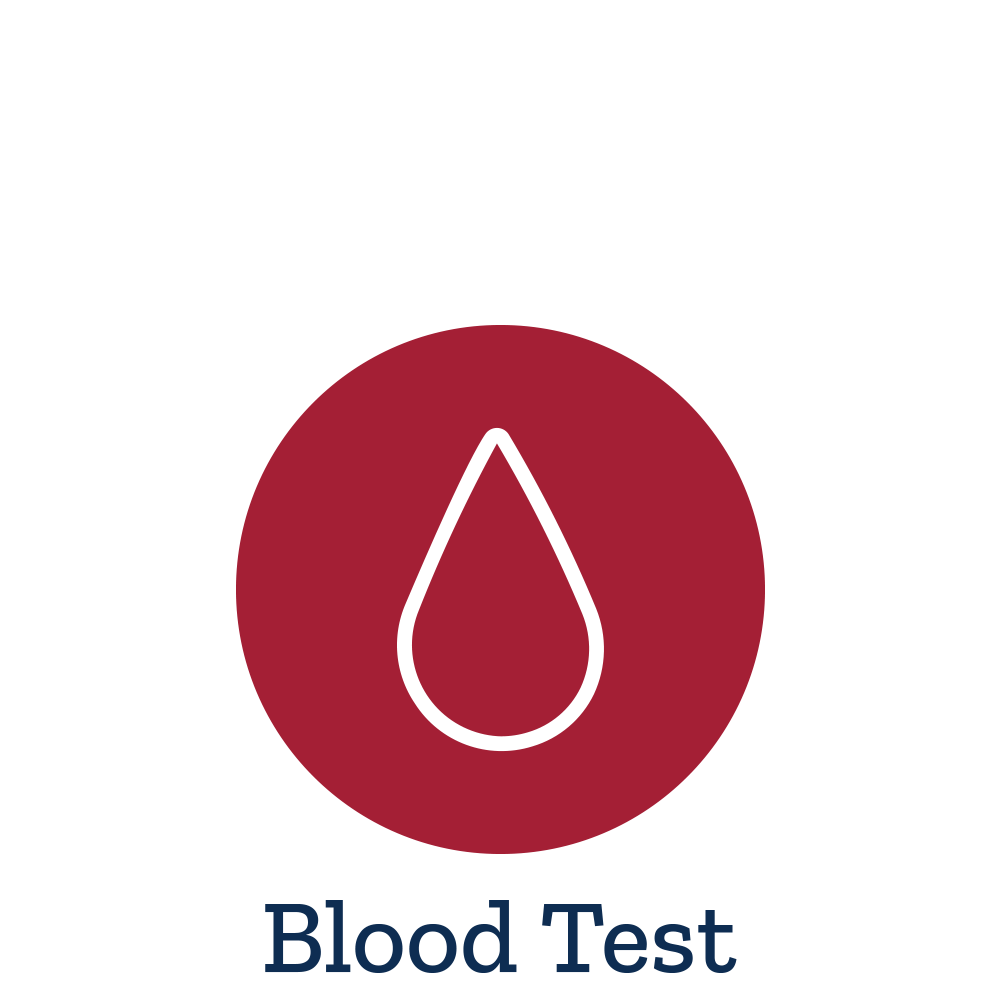Hair Loss Panel (Comprehensive)
Blood Test Item # LC900005
Comprehensive insights into hair-loss concerns.

Hair Loss Panel (Comprehensive)
Blood Test Item # LC900005
Comprehensive insights into hair-loss concerns.
Is a hormone or thyroid imbalance, stress, autoimmune concern, or something else causing your hair loss? This specially designed panel provides an in-depth look at these culprits of hair loss.
Hormone Balance
The hair growth cycle could be affected by hormone imbalances – this panel provides insight into important steroid hormone levels.
Dihydrotestosterone (DHT) is a potent androgen hormone known to contribute to hair loss. An overproduction of DHT can cause hair follicles to shrink and shorten the hair growth cycle.1
DHEA is a precursor hormone that influences the production of other hormones in the body, like estrogen and testosterone. Fluctuations in DHEA-s levels may impact hair growth and quality.
Free and Total Testosterone - testosterone can influence hair growth patterns, and imbalances in testosterone may contribute to hair loss in both men and women.
Estradiol levels play a critical role in maintaining hair health, and imbalances in estradiol can contribute to hair thinning and hair loss.
Insulin Resistance
Insulin is an important hormone in monitoring metabolic disease, which can influence hair health. Insulin resistance can play a significant role in hair loss concerns, leading to an inflammatory response that may shrink hair follicles. Insulin may also play a role in DHT's effects on hair growth patterns.3
Thyroid Function
Thyroid dysfunction can disrupt the hair growth cycle, and lead to hair thinning or hair loss – this panel provides comprehensive thyroid testing for TSH, Free T3, Free T4 and reverse T3.2
Thyroid Stimulating Hormone (TSH) is a primary indication of thyroid function, which plays an important role in hair health. Hypothyroidism and hyperthyroidism are both associated with widespread hair loss. Testing TSH provides insight into thyroid function and detects abnormalities that may be impacting your hair growth cycle.2
Free T3 is the bioavailable form of T3 (triiodothyronine), which is the most active thyroid hormone.
Free T4 is the bioavailable form of T4 (Thyroxine), which is the primary hormone produced by the thyroid. T4 is also converted to the more active hormone T3. Healthy levels of both T3 and T4 are necessary for normal thyroid activity. Both low thyroid hormone activity (hypothyroidism) and high thyroid hormone activity (hyperthyroidism) are associated with hair loss concerns.
Reverse T3 is a non-functioning form of T3 and can provide additional insight into symptoms of low thyroid function. T4 is normally converted to T3, but other factors, like stress-induced elevations in cortisol, may inhibit this conversion and produce reverse T3. Reverse T3 can interfere with T3’s normal effects and produce symptoms of low thyroid function, contributing to hair loss.
Stress
Stress is not only a significant overall health hazard, but it can also cause hair follicles to go into the resting phase and stop hair from growing. As a result, hair can fall out weeks to months later. This type of hair loss is called telogen effluvium and it can be triggered by any stressful event such as: infections, medication side effects, nutritional deficiencies, hormonal imbalances, and any acute stress or traumatic event.
Cortisol is a primary biomarker for monitoring stress. Chronic high or low levels can reflect acute or ongoing stress and point toward stress-related hair loss.1
Inflammation
Chronic inflammation can impact hair follicle health and contribute to hair loss.
C-reactive protein (CRP) is a sensitive marker of systemic inflammation. Inflammation of hair follicles and associated inhibition of hair growth has been observed in hair loss concerns.5
Autoimmune Concerns:
Many autoimmune diseases are associated with hair loss, especially alopecia areata but also systemic lupus erythematosus, Hashimoto’s hypothyroidism, psoriasis, Crohn’s Disease, and ulcerative colitis.6
ANA (Antinuclear Antibodies)testing is a primary screening tool for autoimmune conditions, which contribute to hair loss. Evaluating ANA can help determine if autoimmune concerns may play a role in hair loss.4
Iron Status
Ferritin is an iron storage protein used to evaluate iron status. Iron deficiency anemia has been linked to hair loss, due to iron’s important role in hemoglobin production and nutrient distribution throughout the body. When ferritin is low, hair follicles may enter a dormant state and fall out due to low iron status.7
Note
If you are supplementing with any hormones, we suggest taking them approximately 2 hours prior to having your blood drawn to see peak levels. Hormones are best drawn between 8-10 AM.
References
- https://www.ncbi.nlm.nih.gov/pmc/articles/PMC7432488
- https://www.ncbi.nlm.nih.gov/pmc/articles/PMC10492440
- https://www.ncbi.nlm.nih.gov/pmc/articles/PMC4144211
- https://www.ncbi.nlm.nih.gov/pmc/articles/PMC4377414
- https://www.ncbi.nlm.nih.gov/pmc/articles/PMC7667670
- https://doi.org/10.1159/000527933
- https://pubmed.ncbi.nlm.nih.gov/20021982
The laboratory services are for informational purposes only. It is not the intention of National Diagnostics, Inc and Life Extension to provide specific medical advice but rather to provide users with information to better understand their health. Specific medical advice including diagnosis and treatment will not be provided. Always seek the advice of a trained health professional for medical advice, diagnosis or treatment.
Both the physician and the testing laboratory are independent contractors with whom National Diagnostics, Inc makes arrangements for your blood tests. Neither National Diagnostics, Inc or Life Extension will be liable for any acts or omissions of the physician, the testing laboratory, or their agents or employees.
A clinician's order is required for many tests. Where applicable, an independent clinician will review your test request and determine whether to authorize the test, if appropriate. For additional information, see PWNHealth Terms of Service.
Life Extension - Why We Do It?
The Best Supplements Science Can Offer
When putting something in your body, you should be confident that you’re getting the nutritional benefits your body deserves. We've been delivering high-quality, science-backed supplements for more than 40 years.
What Matters to You, Matters to Us
We're committed to empowering you to live a healthier life. Whether it’s finding sustainable partners for our ingredients or funding the latest anti-aging research, we're all about your health & wellness.
Highly Recommended
98% of our customers recommend us to family and friends. We're very proud of that because our loved ones matter to us—and we're willing to bet you feel the same way.
Product Transparency
40 years of research dedicated to bringing you premium, scientifically-validated formulations.
Product reviews are provided for informational purposes only and reflect solely the views and opinions expressed by the contributors and not those of Life Extension. We do not verify or endorse any claims made in these reviews.




